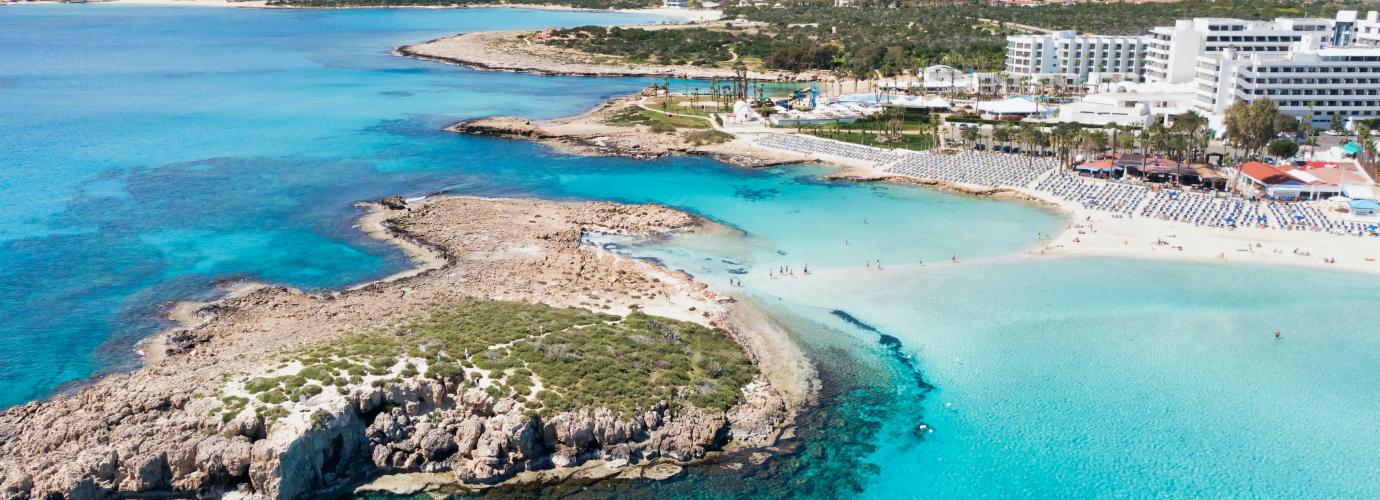In Cyprus secondary education is offered in two different types of provision: secondary general education and secondary technical and vocational education. Each type of education is administered by a different Directorate of the Ministry of Education and Culture - the Directorate of Secondary General Education and the Directorate of Technical and Vocational Education respectively. Secondary schools can be public or private.
Public secondary schools are open to children aged 12-18 years, except for the case of the public evening schools which are open to persons who have completed the age of 17, or persons aged 14-17 years, who are working in the labor market or have left uninterrupted education for serious reasons.
Public secondary education includes a six-year cycle of studies, which is free for all pupils and compulsory up to the age of fifteen or the end of the third year of studies, whichever comes first. Some private schools extend their cycle of studies to seven years in order to prepare pupils for international examinations. All types of secondary schools are co-educational and mixed-ability.
Since November 2012 post-secondary non-tertiary education is offered at the Post-Secondary Institutes of Vocational Education and Training (Μεταλυκειακά Ινστιτούτα Επαγγελματικής Εκπαίδευσης και Κατάρτισης - ΜΙΕΕΚ). The MIEEKs are public schools administered by the Directorate of Technical and Vocational Education of the Ministry of Education and Culture. They are open to secondary education graduates (ages 18+) and offer programs of further technical and vocational education and training. Attendance is free of charge.
Secondary general education
There are two main, broad aims of secondary general education:
- the dissemination of knowledge with an emphasis on general education and a gradual transition to specialization in order to prepare students for an academic, professional or business career; and,
- the development of well-rounded individuals in order to provide society with competent, democratic and law-abiding citizens.
Secondary General Education comprises a six-year course of studies, which is divided into two successive cycles, the general lower secondary education (Gymnasium) and the general upper secondary education (Lyceum).
The Gymnasium offers a 3-year long cycle of general education with an emphasis on humanities and is expected to prepare pupils for subject selection in the Lyceum. The educational objectives in the Gymnasium include:
- broadening pupils' moral, social, personal, aesthetic, technical and economic values;
- providing knowledge that will help pupils meet personal, social and economic challenges;
- developing skills for critical literacy through the acquisition of the pupils’ first language;
- leading pupils to acquaint themselves with a range of different art forms, express their artistic talents and progressively from their own sense of connoisseurship;
- helping pupils to become self-aware of their potential in terms of skills, interests, and talents, and be able to appreciate the importance of both intellectual and vocational aspects of work in order to select the type of employment they aspire to; and,
- the physical development of pupils by cultivating their kinaesthetic skills.
The Lyceum offers a three-year-long cycle of studies, which includes common core subjects, optional stream subjects and subjects of special interest and/or enrichment. The Lyceum aims to:
- offer pupils the opportunity to develop all facets of their capabilities through general as well as specific scientific and technological knowledge, so that they can respond to a changing world and adapt to an evolving work environment; and,
- link the school with the outside world, thus offering to pupils opportunities to familiarise themselves with the labor market so that they become able to effectively plan their careers, whether they aim to be employed, venture into entrepreneurship or pursue higher education.
Secondary technical and vocational education
Secondary Technical and Vocational Education (STVE) is open to students who have graduated from the Gymnasium. It comprises a three-year-long cycle of studies which is offered at the Technical/Vocational Schools. Three types of programs are offered – formal secondary technical and vocational education; apprenticeship scheme; and, lifelong learning. In the framework of this chapter, only formal secondary technical and vocational education will be examined.
Formal STVE is offered in two main options, the theoretical and the practical, both of which last three years. Its ultimate aim is to provide students with sound knowledge and skills, which will prepare them to enter the world of work or continue with further studies in higher education. The subjects offered are classified into six categories:
- common core subjects;
- related subjects;
- elective subjects;
- technological/workshop subjects;
- optional subjects of special interest; and
- industrial training.
Evening schools of secondary education
Secondary education is also provided by the evening schools, either the Evening Gymnasia/Lyceums or the Evening Technical schools. The aim of evening schools is to provide a ‘second chance’ education to individuals who have left secondary education without a school leaving certificate.
Private secondary education
Private secondary schools are established by private bodies or individuals and they operate on a for-profit basis. They are registered with the Ministry of Education and Culture which is responsible for their supervision.
Post-secondary non-tertiary education
The aim of the Post-Secondary Institutes of Vocational Education and Training is to offer modern and flexible programs vocational education and training that will satisfy the needs of secondary education graduates for further vocational education and training. There are currently eight programs available. These programs last two years and lead to the qualification of "Higher Technician".
Legislation
Regulations ΚΔΠ 310/1990–ΚΔΠ 130/2011, issued on the basis of Article 11 of Law 6/1961 and its amendments, govern the operation of public secondary schools. The operation of public evening secondary schools is governed by Regulations ΚΔΠ 45/1990–ΚΔΠ 337/2010, issued on the basis of the same Law.
Private secondary education is governed by the laws on Private Schools and Institutes (Laws 5/1971 to 77(I) 2008), which concern private schools and institutions.
Law 24(I)/1993 provides that education is compulsory and free at the elementary and gymnasium level.

